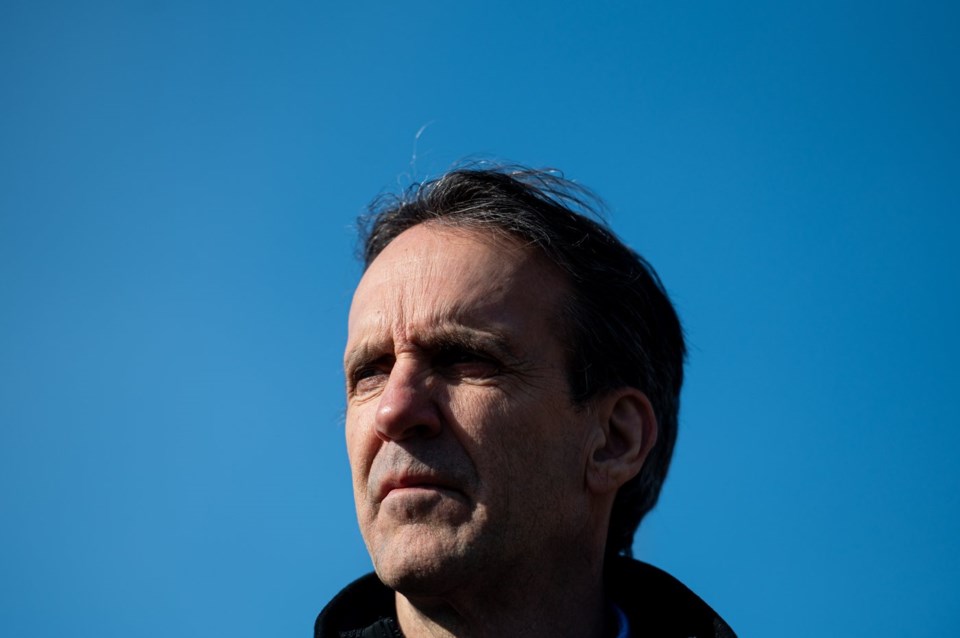OTTAWA — Canada's fentanyl czar says the fight against the deadly opioid would get a boost from proposed new tools for law enforcement in the Liberal government's recently tabled border bill.
Kevin Brosseau, the federal point person on fentanyl, welcomes provisions in the Strong Borders Act to increase inspection powers, give police easier access to information, crack down on money laundering and improve control of chemicals used to make the drug.
Brosseau was appointed fentanyl commissioner in February in response to the White House's vocal concerns about the southbound flow of the synthetic opioid into the United States — criticism it used to justify tariffs against Canada.
In an interview, Brosseau said Canada is "not the significant source" of fentanyl entering the United States, but reiterated his stance that being the source of any of the drug is a concern because small amounts can have devastating effects.
Brosseau, a former senior Mountie, said his American counterparts have expressed "deep appreciation" for Canada's efforts to address fentanyl, given the U.S. focus on hardening the border and protecting the homeland.
He said they want to take additional steps in "a collaborative approach" with Canada to address any gaps in areas such as information sharing.
As a result, Brosseau said, his message of integrating and amplifying the work on fentanyl north of the border "has been well received" by the Americans.
"We know domestically, in communities across this country, there is a problem with fentanyl production, supply, trafficking and use," he said.
An average of about 21 people a day are dying in Canada from using the drug, "and that's what incentivizes me to act and do something."
The Liberal government's wide-ranging border bill has drawn pointed criticism from civil libertarians and refugee protection advocates.
The legislation contains several elements Brosseau sees as helpful in tackling fentanyl, including a requirement that owners and operators at certain ports provide facilities for the Canada Border Services Agency to examine and detain goods bound for export.
The bill would also remove barriers that prevent police from searching mail to advance a criminal investigation, where authorized to do so under the law, and expand Canada Post's inspection authority to open mail.
The legislation would also make it easier for authorities to access information about internet subscribers, enable the health minister to more rapidly control precursor chemicals that can be used to produce illicit drugs and introduce new restrictions on large cash transactions.
Brosseau suggested a comprehensive approach is key because, otherwise, fighting fentanyl producers and traffickers becomes a game of whack-a-mole, with a new vulnerability popping up as soon as one is eliminated.
"Criminal organizations are incredibly adept at figuring out what the weak points are, and when the weak points are found, they will be exploited until you close it off," he said.
The proposed legislation builds on earlier Canadian border security measures, including the introduction of round-the-clock border surveillance using helicopters, drones and towers.
Ottawa is also working with Washington on a North American "joint strike force" to target organized crime groups that work across borders.
Overall, Brosseau is taking a broad view of the fentanyl problem, stressing the need to hold those who profit from the drug accountable and make sure authorities have the needed tools, while also putting programs in place to help addicted people find a path to recovery.
"I call it an all-of-society approach," he said. "And the conversations I have with everybody (are) that there are no free rides in this."
Brosseau said the scourge of fentanyl and other opioids has become a concern on his street among "parents like me" — part of a larger national conversation.
He said he's in a position to provide some comfort and security to fellow parents worried about their children who might be exposed to drugs, and solace to those who are going through heartache by showing "that we're going to do something about it."
This report by The Canadian Press was first published June 13, 2025.
Jim Bronskill, The Canadian Press



